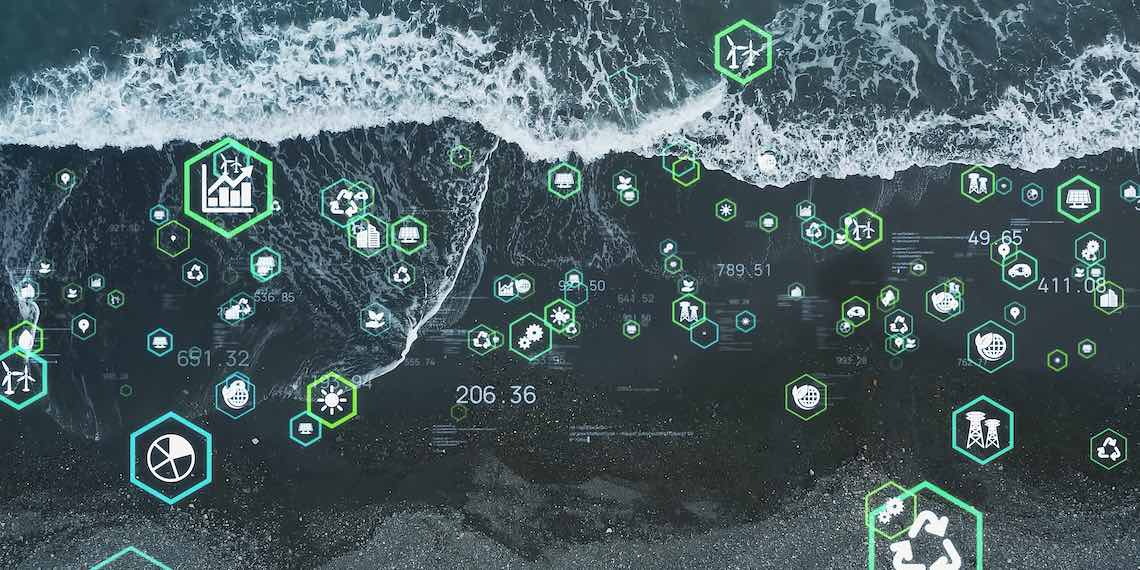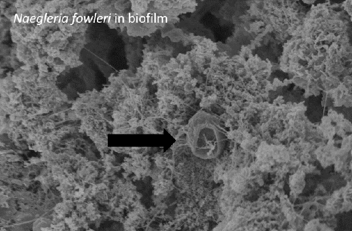Industry-led workshop unpacks ESG to enable positive outcomes

All water professionals have a part to play in delivering positive environmental, social and governance (ESG) outcomes, and one recent industry-led workshop delved into insights that can help the whole sector develop practical avenues for change.
AECOM facilitated a workshop at this year’s Ozwater conference in May, with panellists from Greater Western Water, MidCoast Council, and John Holland, to share examples of incredible ESG outcomes and equip all in the industry to take action, regardless of their role in the sector.
Led by AECOM water engineer and ESG influencer Eliza Cowey, the workshop included presentations from three panellists: MidCoast Council Director of Infrastructure and Engineering Services Rob Scott, John Holland General Manager for Water Margaret Riley, and AECOM Global Water Business Line Director for Strategy and Growth David Middleton.
Cowey said the workshop was designed to develop a deeper understanding of ESG in the water sector and facilitate conversation, but also to collect and compile ideas and recommendations from participants about key ESG enablers.
“At its heart, ESG is about measuring the good that a company is doing so that people can decide if they want to support or invest in that company. It's a way to communicate to our customers about the great things we are doing in these areas,” she said.
“I love that we live in a time now where caring about the environment and caring about people is no longer just a hobby or an add-on. These are financially driven terms because people invest in companies that address these areas.
“All the work the water sector does is naturally driven towards looking after people’s health and the health of the environment. And much of the work here for the water sector is about communicating what we are already doing in a way that people can understand.”
Cowey said the ESG lens particularly applies to the water sector due to the crucial environmental, social and governance work the sector undertakes.
“The world is becoming aware that things can go wrong quickly. Damage has been done and we want to undo it but also avoid doing more damage to the environment and to communities,” she said.
“The ESG lens is also a really exciting perspective to communicate. It creates accessibility for people who aren’t in the sector or who have not been communicated with well in the past.”
Practical focus
Cowey said the primary aim of the ESG workshop was to nurture a two-way conversation about ESG within the sector and ensure outcomes of the workshop were practical and useful for participants and the wider water community.
“Up front, we had a conversation about what ESG actually means and the fact that it is a real driver in our water businesses. We then asked about the great work in this area and how it was achieved,” she said.
“We had a big emphasis on practicality. There’s a lot of talk about becoming more sustainable, cutting emissions and supporting communities, but what does that look like practically? The ultimate goal was to understand and empower. It was about sharing what works well for different people and organisations.”
As part of the ESG workshop, AECOM created a one-page toolbox with key questions, tools and resources to equip anyone in Australia's water sector to embed positive ESG outcomes.
The toolkit has been updated with additional items submitted by workshop attendees: “So we’ve created a crowd-sourced and industry-approved toolbox to share with the wider industry,” Cowey said.
“We had a vast array of participants; people on boards and in governance positions, all the way through to designers, engineers and contractors. So the toolkit provides a broad entry to issues. The questions focus on what an individual can do within their own work.
“It encourages people to look at what others have done, what has enabled them and to apply those learning to their particular context.”
While the workshop maintained a strong focus on discussion between participants, Cowey said the panellist’s presentations were a strong anchor.
AECOM Global Water Business Line Director for Strategy and Growth, David Middleton, who is also Chair of Greater Western Water (GWW), shared his perspective on the governance behind the utility’s ambitious Roadmap to Net Zero.
GWW aims to reduce its Scope 1 and 2 carbon emissions from its 2018 baseline by 42% by 2025, 94% by 2030 and 100% by 2035. Middleton outlined actions GWW has taken to progress towards these targets, including efficient equipment, biogas for energy, renewable electricity, purchasing renewable electric vehicles and generating offsets.
MidCoast Council Director of Infrastructure and Engineering Services, Rob Scott, shared the MidCoast community’s experience with unprecedented drought, which led to a community engagement response to influence investment in long-term water security.
And John Holland General Manager for Water, Margaret Riley, discussed how her company’s approach to training and partnering has led to direct and indirect employment opportunities for refugees, asylum seekers and disadvantaged communities.
Key recommendations
Using the examples of ESG work discussed by the panellists, and insights and ideas collected from workshop participants, AECOM has identified four key recommendations for the water sector to actualise valuable ESG outcomes.
Leadership and policy: Legislation must include quantifiable ESG outcomes specific to the water sector to drive positive change utilising commercial levers.
Ultimately, those with authority at a governance level must boldly set specific goals and hold those within their jurisdiction to account. Legislation and policy are key drivers for achieving positive ESG outcomes, as reflected in 32% of workshop responses.
Community: The water sector must invest the funding required to achieve long-term resilience and water security in the face of a changing climate while avoiding undue financial burden for the underprivileged. Communities must be viewed as core stakeholders in the delivery of water infrastructure and services.
Their involvement in decision-making is ultimately an investment in the future of the water sector; they are our customers, and they are driving positive ESG outcomes. Communities being enablers for ESG outcomes was reflected in 19% of the workshop attendees' submissions.
Personal values: The water sector workforce must be educated and inspired to understand the 'why' and the 'how' to successfully implement positive ESG outcomes.
Investing in education and support in our organisations can drive cultural change and align personal values, motivating individuals to deliver positive outcomes. Just over 30% of the workshop attendees identified this as a key factor in enabling positive ESG outcomes.
Practical enablers: We are facing climate emergencies; the water sector must continue to work collaboratively to improve our systematic sharing of data, knowledge, resources, and stories.
About 19% of workshop attendees reported that practical enablers such as data, resources, knowledge and collaboration are required to achieve positive ESG outcomes.
The water sector must continue collaborating to serve the community and environment, improve the systems we inhabit, and share and learn from one another as we generate solutions, processes, data, knowledge, resources and good-news stories.
While these recommendations are a direct product of the ESG workshop, Cowey said the workshop itself was also a practical enabler.
“The real value of this workshop was the conversations at tables where people shared the work they had been doing in the ESG space and discussed ideas with peers. There were people from all different areas of the sector with different areas of influence all talking and sharing ideas,” she said.
“It was inspirational. We all got to hear from some really talented people doing some phenomenal work. I came away from it with a renewed respect for our sector.
“Climate anxiety can be really overwhelming, particularly for young people. But seeing all of this real change and that people are doing good things is amazing. I am very pleased to be a part of this work.”

